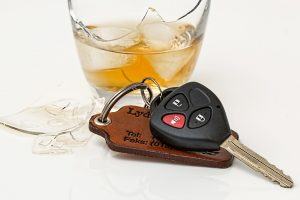 Driving while under the influence of alcohol is both dangerous and illegal, and Pennsylvania has robust laws against driving while intoxicated (DWI). Though some of these laws are extremely straightforward, others are a bit less clear, and this is particularly true of the aspect of the state’s laws that refer to “actual physical control” of the car. According to statute DIO-75PA.C.S.A. section 3802, a person may not drive, operate or be in actual physical control of the movement of a vehicle after consuming a sufficient amount of alcohol to render them incapable of safely driving. But what if a person walks out of a situation where they have been drinking, is aware that they are not capable of driving, and simply climbs into their car to sleep it off? Can they still be found guilty of DWI?
Driving while under the influence of alcohol is both dangerous and illegal, and Pennsylvania has robust laws against driving while intoxicated (DWI). Though some of these laws are extremely straightforward, others are a bit less clear, and this is particularly true of the aspect of the state’s laws that refer to “actual physical control” of the car. According to statute DIO-75PA.C.S.A. section 3802, a person may not drive, operate or be in actual physical control of the movement of a vehicle after consuming a sufficient amount of alcohol to render them incapable of safely driving. But what if a person walks out of a situation where they have been drinking, is aware that they are not capable of driving, and simply climbs into their car to sleep it off? Can they still be found guilty of DWI?
This question has been asked many times and has been the subject of cases that have been heard by the Pennsylvania Supreme Court. What the court has decided is that the question of actual physical control is dependent upon all of the circumstances that are involved, and the main question is whether or not the person who has been accused of the DWI was operating the vehicle while intoxicated at any point, or whether there was an indication that they might intend to. Indications pointing to guilt would include such things as the vehicle’s engine running, or the vehicle being pulled over to the side of the road, which would be an indication that the driver had been operating the vehicle, but then stopped. Similar examples would be if a car was parked in a haphazard way in a parking lot, and obviously if the car was not moving because it had been in an accident.
When you’ve been accused of DWI, the strength of the prosecutor’s case will rely on numerous factors, including the results of field sobriety tests, the results of blood alcohol concentration tests, and the reasons for the police pulling you over or questioning you in the first place. If your circumstances did not actually involve driving and your vehicle was not running, then there is a strong possibility that the prosecution will not be able to make the case for you being in actual physical control of the car. To speak with an experienced DWI attorney about your specific situation, call our office to set up an appointment.




